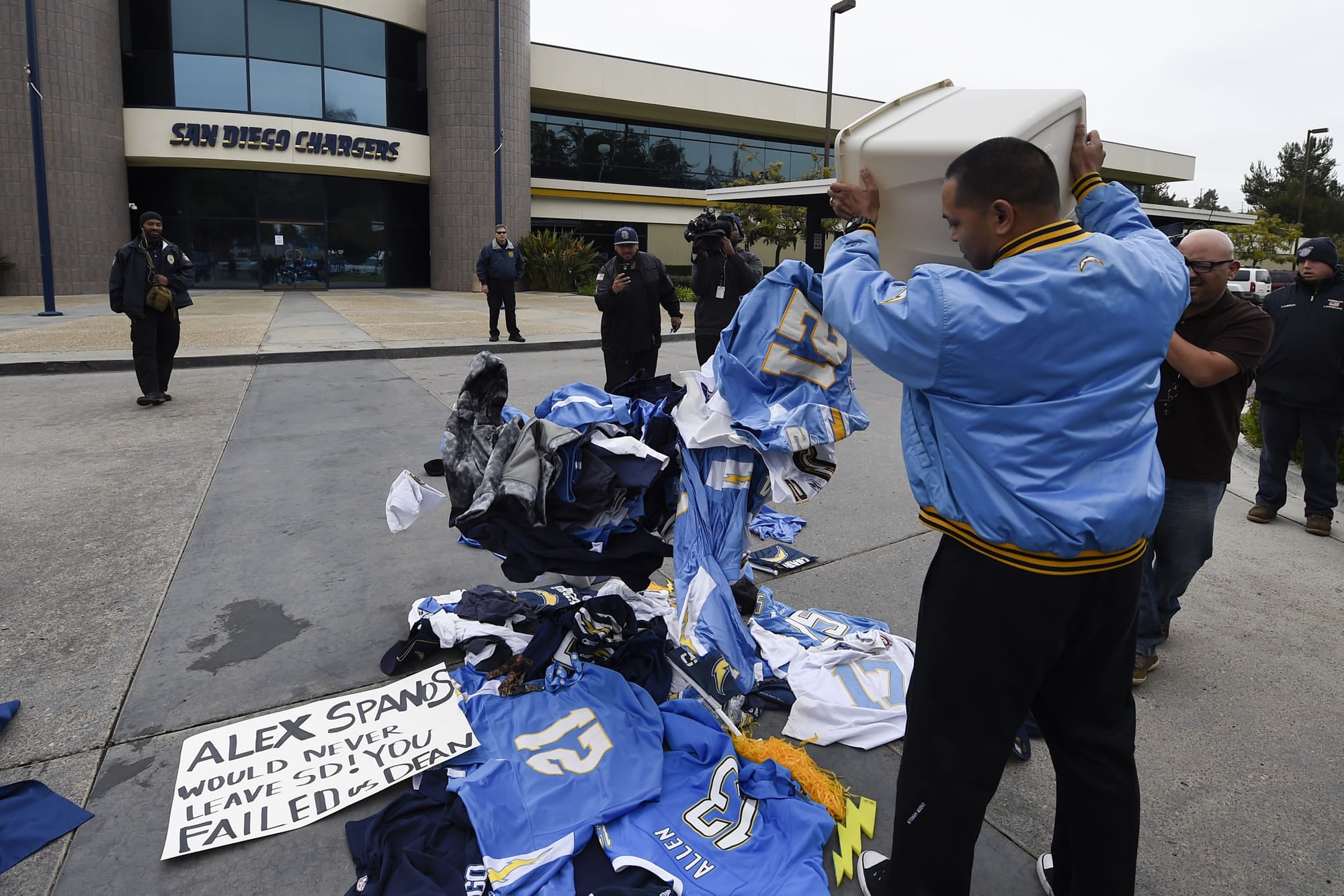Want to delve deeper into Why Did The San Diego Chargers Move To Los Angeles? Read this article to gain broader knowledge.

Why Did the San Diego Chargers Move to Los Angeles?
As a loyal San Diego Chargers fan since my childhood, I couldn’t believe it when I heard the news in 2017: the team was leaving our beloved city for Los Angeles. It was a devastating blow, and I couldn’t help but wonder what had driven this move. In this article, we will delve into the complex reasons behind the Chargers’ relocation, exploring the factors that led to their departure from San Diego.
To fully understand the Chargers’ move, we must first acknowledge the longstanding issue of stadium financing in San Diego. For years, the Chargers had been playing in Qualcomm Stadium, an aging facility that was no longer up to NFL standards. The team’s ownership had repeatedly requested public funding for a new stadium, but negotiations with the city had repeatedly reached dead ends.
The Lure of Los Angeles
Financing and Location
Meanwhile, the city of Los Angeles, with its large population, wealthy fanbase, and corporate presence, offered a much more attractive financial proposition. The Chargers were offered a lucrative deal to move to Los Angeles’ Inglewood district, where a brand-new stadium, SoFi Stadium, was being built. The stadium, which opened in 2020, offered state-of-the-art amenities and a much more modern game-day experience than Qualcomm Stadium.
New Market and Business Opportunities
Beyond the financial incentives, Los Angeles also represented a significant new market for the Chargers. The city’s large and affluent population provided a potential for increased ticket sales, merchandise revenue, and corporate sponsorships. Additionally, the Chargers saw Los Angeles as a gateway to the lucrative international market, particularly in Mexico and China.
Dysfunctional Stadium Negotiations
Public Funding and Mismanagement
The Chargers’ departure from San Diego cannot be solely attributed to the allure of Los Angeles. The team’s relationship with the city of San Diego had been strained for many years, primarily due to the ongoing stadium financing issue. Negotiations between the team and the city had been marked by mistrust and a lack of progress. Ultimately, the Chargers felt that they had no choice but to explore other options.
Lack of Public Support
Compounding the stadium financing issue was a perceived lack of public support for the Chargers in San Diego. While the team had a loyal fan base, it was not as large or as active as in other NFL markets. This lack of community support may have contributed to the Chargers’ decision to seek a new home.
Recent Developments and Impact
Expansion and Relocation
Since the Chargers’ move to Los Angeles, the NFL has continued to expand its footprint. In 2020, the Las Vegas Raiders relocated from Oakland, and the Jacksonville Jaguars are currently exploring a potential move to London. These moves reflect the NFL’s commitment to growing its brand and reaching new markets.
Financial Success and Community Engagement
In Los Angeles, the Chargers have experienced significant financial success. The team has sold out every game at SoFi Stadium and has enjoyed a surge in merchandise sales. The Chargers have also made a concerted effort to engage with the Los Angeles community, supporting local charities and hosting youth football clinics.
Expert Advice and Conclusion
Negotiation and Communication
For teams facing stadium financing issues, it is crucial to approach negotiations with transparency and a willingness to compromise. Clear communication and a collaborative spirit can help build trust between the team and the city. It is also important for teams to fully explore all available funding options and to be prepared to seek alternative solutions if public financing is not feasible.
Community Involvement and Fan Support
Building a strong connection with the local community is essential for any sports team. By investing in community outreach programs and engaging with fans on a personal level, teams can foster a sense of loyalty and support. A strong fan base can be a powerful advocate for stadium financing and other initiatives.
FAQ on the Chargers’ Move to Los Angeles
Q: Why did the Chargers leave San Diego?
A: The Chargers left San Diego due to the inability to secure public funding for a new stadium, as well as a perceived lack of public support in the city.
Q: What are the Chargers’ reasons for moving to Los Angeles?
A: The Chargers were attracted to Los Angeles by the potential for increased financial revenue, a new market, and state-of-the-art stadium facilities.
Q: How has the Chargers’ move impacted San Diego?
A: The Chargers’ move has left a void in the San Diego sports landscape and has had a negative impact on the local economy.
Q: How have the Chargers performed in Los Angeles?
A: Since their move to Los Angeles, the Chargers have experienced financial success and have made a concerted effort to engage with the local community.
Q: What are the implications of the Chargers’ move for the NFL?
A: The Chargers’ move reflects the NFL’s continued expansion and its commitment to reaching new markets.
Are you interested in further exploring the topic of the San Diego Chargers’ move to Los Angeles? Let us know in the comments below!

Image: www.businessinsider.in
An article about Why Did The San Diego Chargers Move To Los Angeles has been read by you. Thank you for visiting our website, and we hope this article is beneficial.